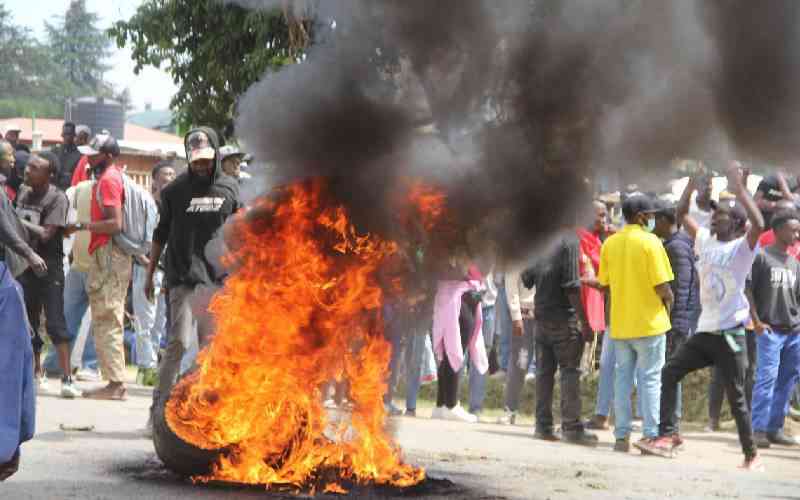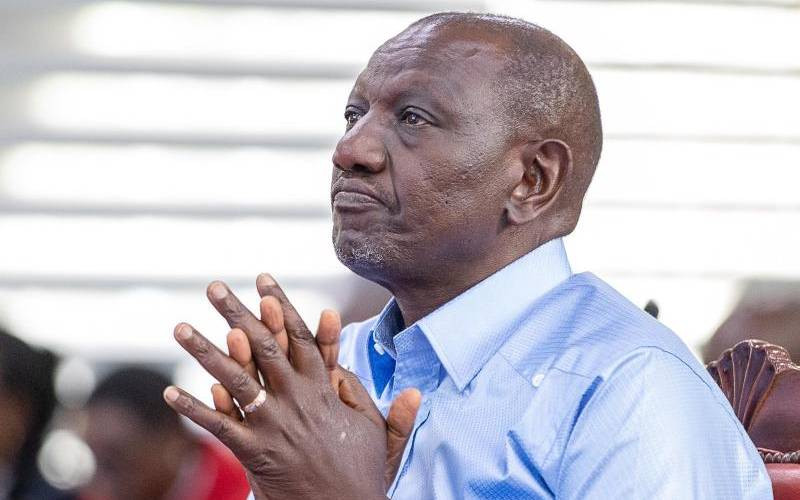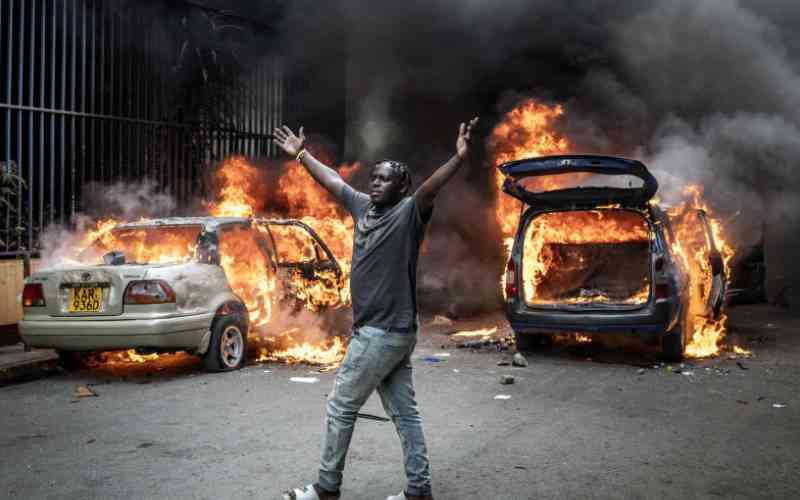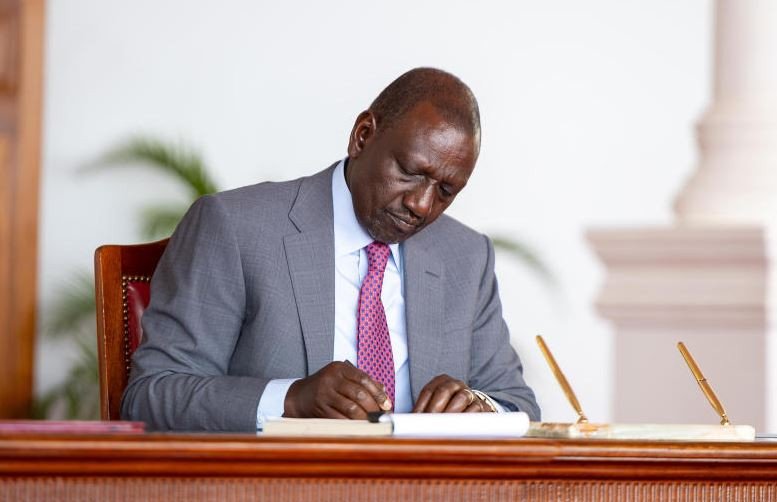
Hundreds of Gen Z protesters march along Thika Superhighway to Nairobi CBD, on June 25, 2025. [Gitau Wanyoike, Standard]
On Wednesday, across the breadth and width of Kenya, a new generation raised its voice. Not in violence, not in chaos, but in a disciplined assertion of their inalienable right to be heard. The streets became the true chambers of public opinion. They carried placards, chants, poetry, and tears. They carried truth. And what did the State do? It met them with water cannons, tear gas, and bullets.
Police, yet again, acted not as a service but as a force. One determined to stifle not lawlessness, but lawful dissent. This moment must force us into clarity. We must ask: What is the role of the State when its citizens protest? Must the State agree with the reasons? Must the State bless the motives? Must it be convinced of the protest's funding sources or ideological spine? The answer, both constitutionally and morally, is a resounding no!
Article 37 of the Constitution enshrines the right of every person “peaceably and unarmed, to assemble, to demonstrate, to picket, and to present petitions to public authorities.” Nowhere—absolutely nowhere—does this Article require State vetting of protest motives. Nowhere does it subject this right to the perceived “genuineness” of the cause. There is no mention of funding sources, ideological purity, or economic inconvenience. The Constitution did not grant the State the power to weigh protest on scales of political convenience. That era died with the autocratic ghosts of the past. Or so we hoped.
Across history, the State has weaponised “order” as a euphemism for suppression. From the Sharpeville massacre in apartheid South Africa to the Kent State shootings in the US, from the Tiananmen Square massacre in China to the 2017 killings of protestors in Kenya, we observe a haunting pattern: When citizens rise, the state crushes, often with impunity. The common denominator is not violence by the protestors, it is fear by the State. Fear of criticism, accountability and truth.
In Kenya, the police force has long acted as a custodian of regime interests, not public service. The baton has fallen harder on youth, slum dwellers, opposition supporters, and now Generation Z. The protestors of June 25 were peaceful, organised, and clear. Yet, the bullets flew. Let us interrogate the rising excuse of ‘business disruption.’ We hear this refrain too often: “We cannot allow protests to disrupt business.” But this argument is constitutionally bankrupt and ethically hollow. Rights are not subordinated to commerce. The right to protest does not extinguish the right to business. Equally, the right to business does not trump the right to protest. There is no constitutional hierarchy that elevates profit over principle.




Indeed, it is fallacious to claim that businesses must shut down for protests to occur. That is a false binary peddled by a State that seeks to convert every protest into a threat, and every demonstrator into a suspect. Why must only protests be feared? The answer lies in their power. A protest is the most honest form of dialogue, the most unfiltered mirror held to the face of power. That is what scares the State, not the noise, but the truth.
In this context, it is profoundly cynical for the State to “offer dialogue” only as a counterweight to protest. Dialogue is not a carrot to dangle when the streets heat up. It is not a bribe for silence. Dialogue and protest are not mutually exclusive, they are often complementary. When institutions fail to listen, people march. When leaders fail to represent, citizens organise. Protest, then, is not the enemy of dialogue. We must also resist the dangerous rhetorical maneuvre that seeks to divide rights against each other. You cannot ask citizens to choose between security and liberty, between order and expression, between business and protest. These are not binary choices.
The architecture of our Constitution was deliberately crafted under the philosophy of transformative constitutionalism—a vision that seeks to break with the past, to dismantle old hierarchies, to assert dignity over dominance. Transformative constitutionalism is not content with formal legal equality; it demands substantive justice. It requires the state to recalibrate power, to act as enabler rather than suppressor. It casts the Constitution not as a cage but as a compass. And within that vision, protest is not an inconvenience. It is a civic sacrament.
Let no one be fooled by the narrative of “funded protest.” It is irrelevant. Whether the ideas emerge from a grassroots activist or a foreign sponsor, the right to protest remains intact. Ideas do not require passports. The legitimacy of dissent is not measured by its donors. Provided a protest is peaceful and unarmed—as it was yesterday—there exists no constitutional, moral, or democratic basis to crush it. The State must stop asking why Kenyans protest. That is not its concern. Its job is to facilitate, to protect, and to respect the right. Anything less is treason against the Constitution.
To the youth of Kenya, especially the brave ones who occupied the streets on Wednesday—know this: History will remember your clarity. You are not a generation of chaos. You are a generation of conscience. To the State: Withdraw your tear gas, your tanks, your threats. Bring your ears. You have failed to deliver jobs, justice, and transparency. At the very least, do not deny citizens their right to say so. Protest is not rebellion. It is a retention of sovereignty by the people.






